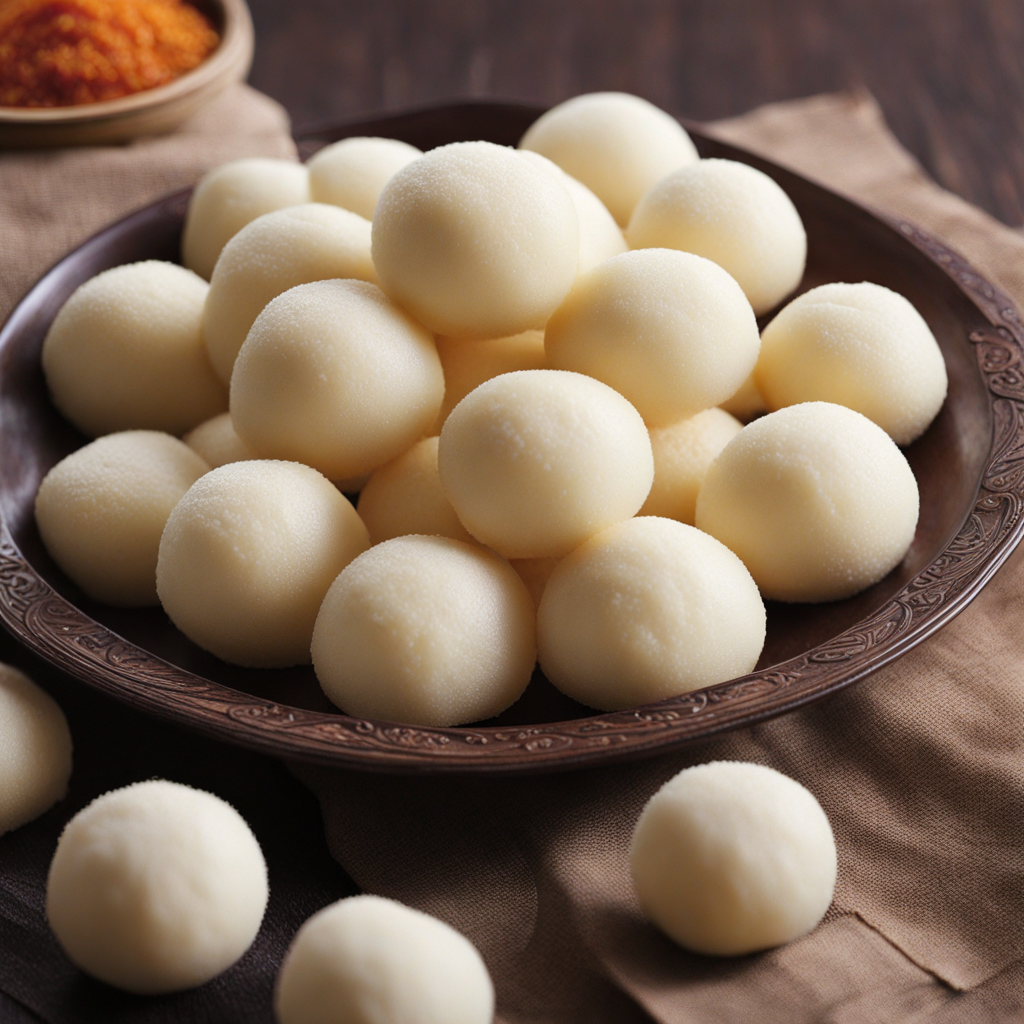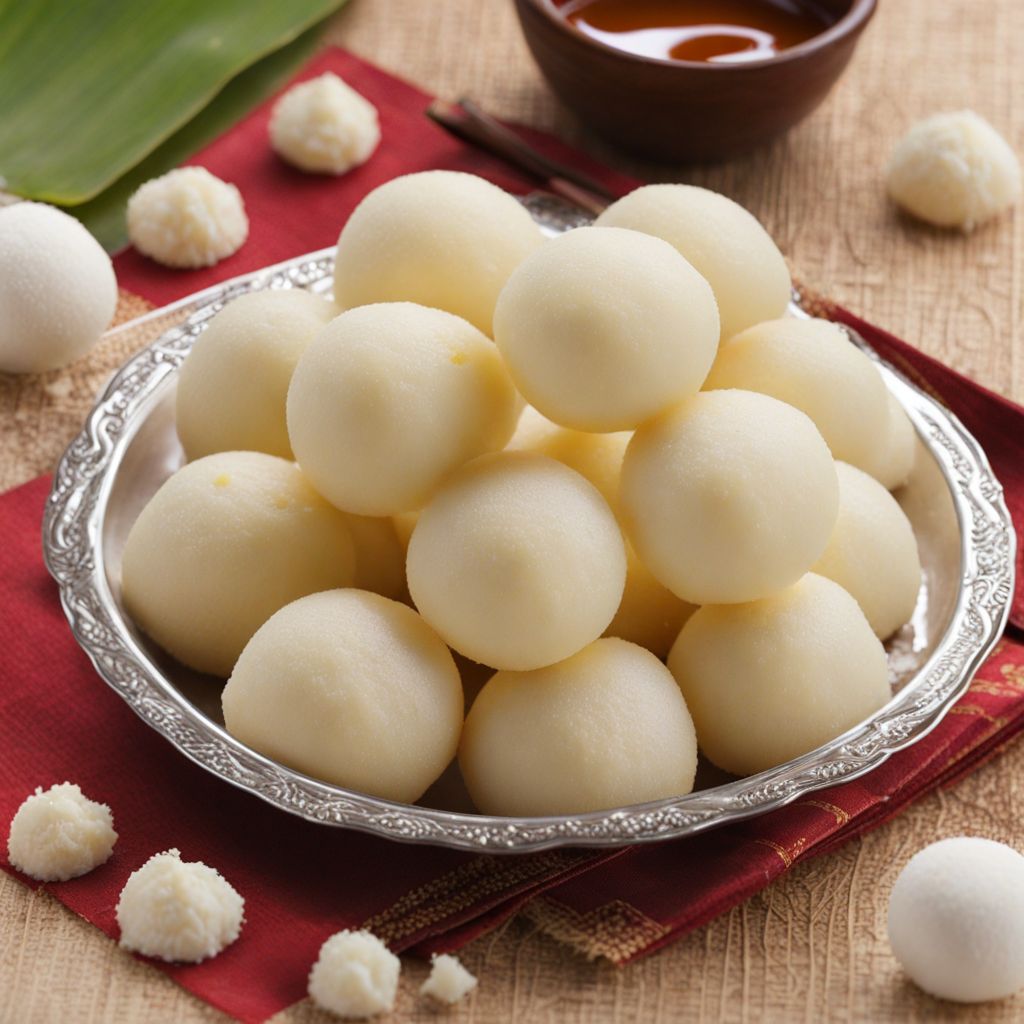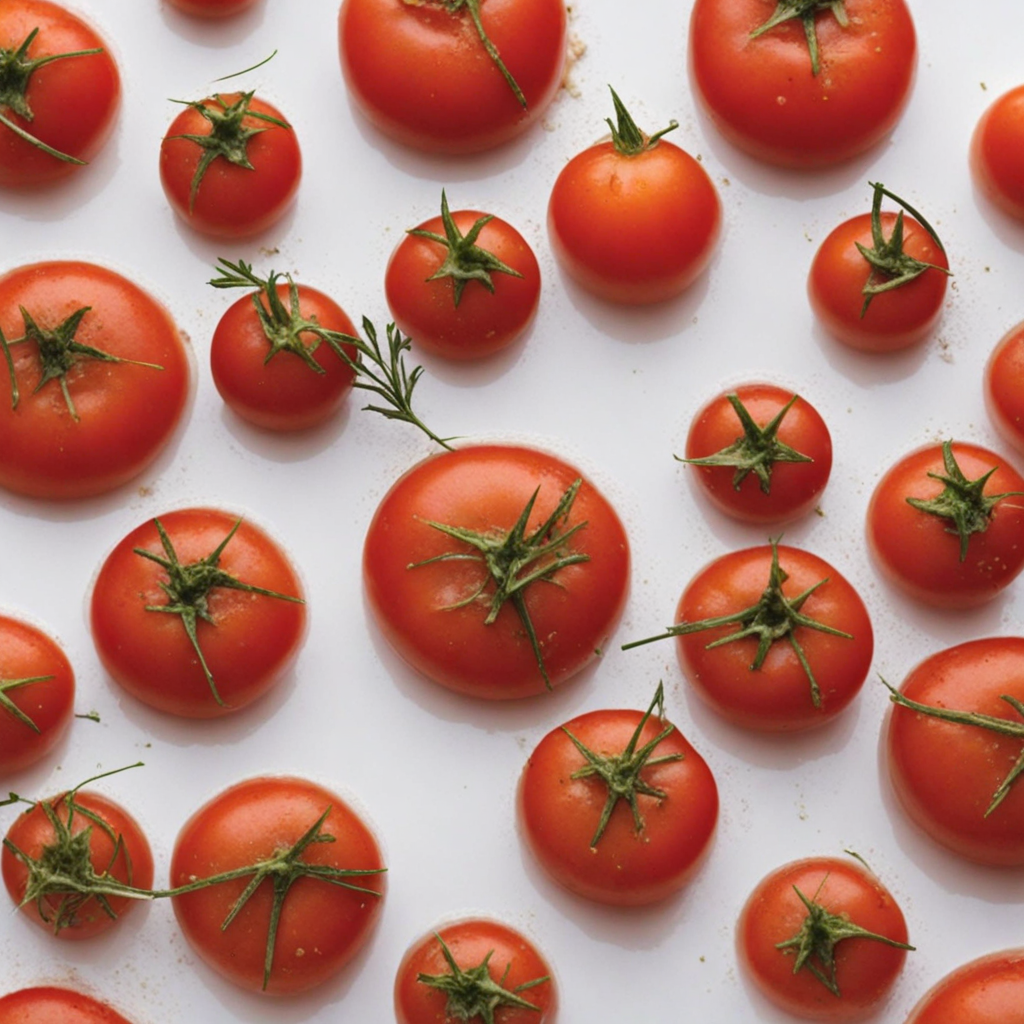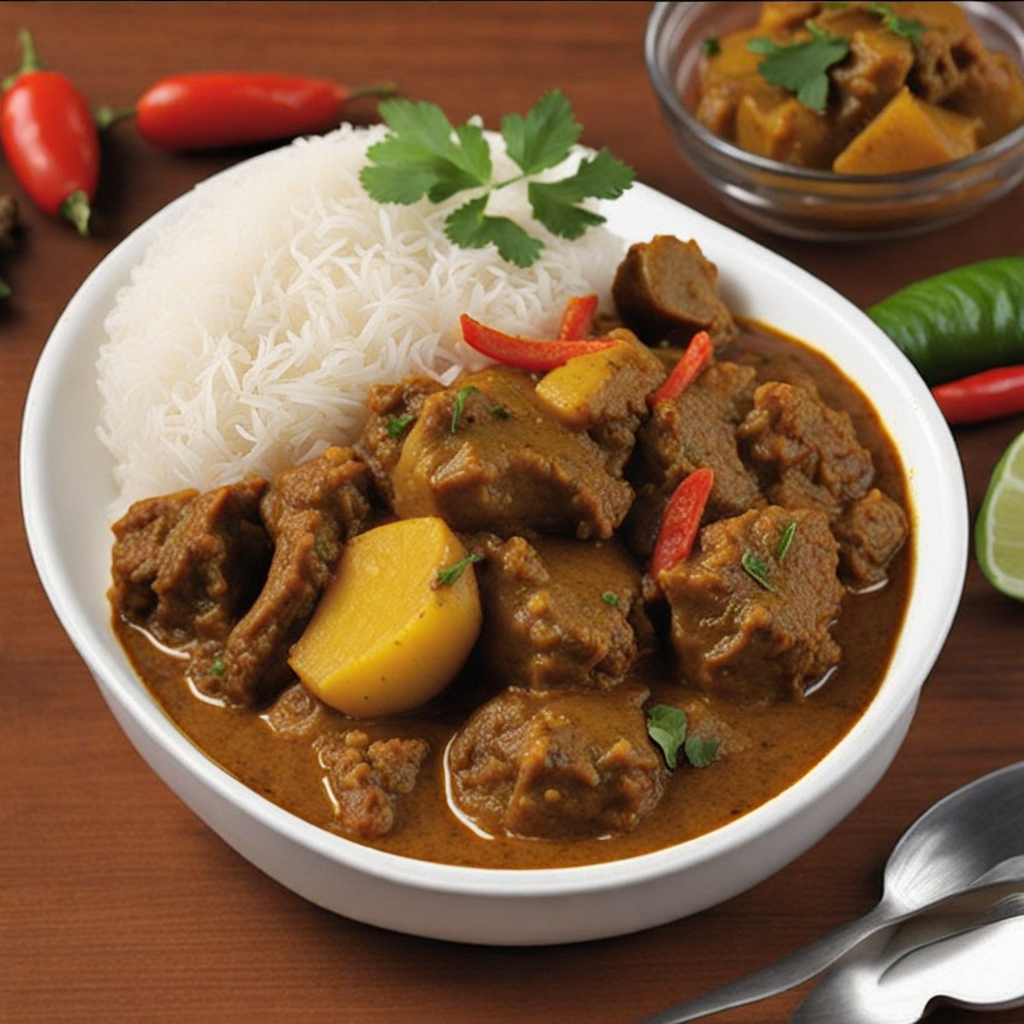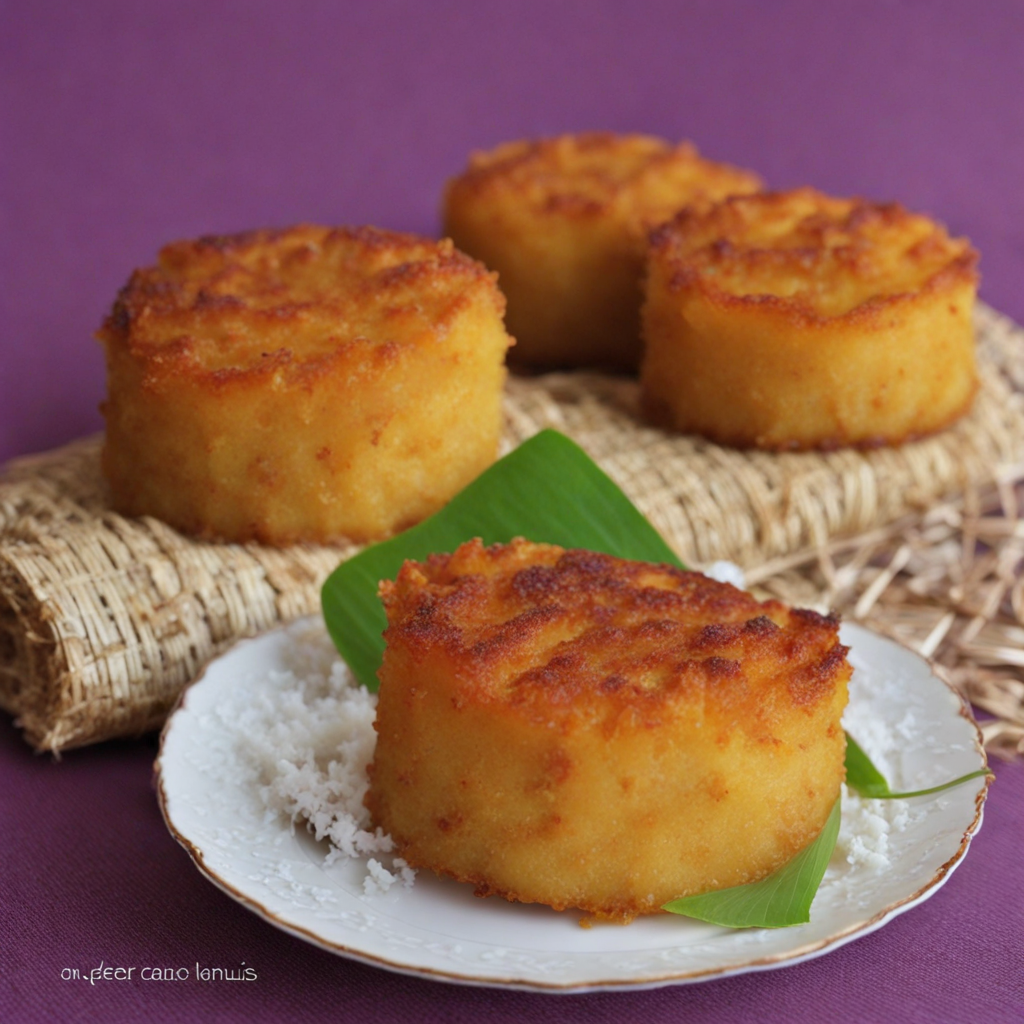Rasgulla
Rasgulla is a delightful and spongy dessert that hails from the vibrant culinary landscape of Mauritius, showcasing a perfect blend of cultural influences. This sweet delicacy is made primarily from chhena, which is fresh cheese obtained by curdling milk. The soft, round dumplings are gently simmered in a light sugar syrup, giving them a distinct sweetness that complements their airy texture. The syrup, often infused with hints of cardamom or rosewater, enhances the overall experience, making each bite a burst of flavor that delights the palate. What sets Mauritian Rasgulla apart is its unique preparation method, which incorporates local ingredients and techniques that reflect the island's rich history of culinary fusion. The dumplings are skillfully crafted by hand, ensuring a perfect balance between softness and resilience. As they soak in the warm sugar syrup, they absorb the sweetness while maintaining their delicate structure. This process results in a dessert that is not only visually appealing but also offers a satisfying mouthfeel that keeps you coming back for more. Rasgulla is often enjoyed as a festive treat during special occasions and celebrations, symbolizing joy and togetherness. It is typically served chilled, allowing the flavors to meld beautifully, making it an ideal end to any meal. With its enchanting taste and texture, Rasgulla invites adventurous food lovers to experience a slice of Mauritian culture, leaving a lasting impression that lingers long after the last bite.
How It Became This Dish
The Sweet Journey of Rasgulla in Mauritius #### Origins and Historical Context Rasgulla, a beloved sweet treat, has its roots in India, specifically in the eastern state of Odisha and the city of Kolkata in West Bengal. The story of Rasgulla begins in the 19th century, although its origins may trace back even earlier to traditional Indian sweets. The main ingredient, chhena (a form of fresh cheese), is made from curdled milk, which is a staple in Indian cooking. The sweet dumplings are typically soaked in sugar syrup, giving them their characteristic sweetness and spongy texture. The name "Rasgulla" is derived from the Bengali words "ras," meaning juice or syrup, and "gulla," meaning ball, highlighting its distinctive shape and the syrupy sweetness that defines it. While it is widely accepted that the sweet was popularized in Kolkata, the sweet has been a part of the culinary practices of Odisha for centuries, with the earliest references found in the 12th century when it was offered to the deities in temples. #### Cultural Significance Rasgulla's significance transcends mere taste; it embodies the festive spirit and culinary heritage of India. In Odisha, the sweet is often associated with the Rath Yatra (Chariot Festival) of Lord Jagannath, where it is offered to the deity and distributed among devotees. In Bengali culture, Rasgulla is a staple at celebrations and gatherings, symbolizing hospitality and joy. The sweet became emblematic of Bengali identity and culture, celebrated in literature and folklore. It produced a sense of regional pride, particularly between the states of Odisha and West Bengal, leading to a rivalry over its true origin. The debate culminated in 2017 when Odisha received a Geographical Indication (GI) tag for its version of Rasgulla, recognizing its unique preparation method and cultural significance. #### The Sweet's Arrival in Mauritius The journey of Rasgulla to Mauritius is intertwined with the island's rich history of migration and cultural exchange. In the 19th and early 20th centuries, a significant number of Indian laborers were brought to Mauritius to work on sugar plantations, particularly after the abolition of slavery in 1835. These laborers hailed primarily from the regions of Uttar Pradesh, Bihar, and Tamil Nadu, bringing with them their culinary traditions, which included various sweets. Among the diverse array of dishes introduced to the island, Rasgulla found a place in the Mauritian culinary landscape. The adaptation of Rasgulla in Mauritius is a testament to the blending of Indian traditions with local flavors and ingredients. As the Indian community settled and flourished in Mauritius, they preserved their culinary heritage while also assimilating with local customs. #### Evolution and Popularization in Mauritius In Mauritius, Rasgulla evolved, adapting to the local palate and culinary practices. The sweet is usually made using similar ingredients to its Indian counterparts, but the preparation methods may vary slightly. The Mauritian version often incorporates local flavors, such as coconut or cardamom, enhancing the taste profile and making it distinct. The sweet's rising popularity in Mauritius coincided with the island's growing multiculturalism. As various communities, including Creole, Chinese, and European, interacted and exchanged culinary practices, Rasgulla became a common feature at celebrations and festivals. It is often served during Diwali, the Hindu festival of lights, as well as at weddings and other significant gatherings. The sweet is emblematic of the island's diverse food landscape, where Indian, African, French, and Chinese influences coexist harmoniously. #### Rasgulla in Contemporary Mauritius Today, Rasgulla is not just an Indian sweet; it has become a cherished part of the Mauritian identity. It is commonly found in sweet shops, markets, and at family gatherings. The confection has also made its way into the modern culinary scene, with chefs experimenting with innovative presentations and flavors. Contemporary twists may include variations like Rasgulla cheesecake or fusion desserts that highlight the sweet's versatility. The globalization of food culture has further contributed to the popularity of Rasgulla in Mauritius. With the rise of social media and food photography, the sweet has garnered attention beyond local borders. Food festivals celebrating Mauritian cuisine often feature Rasgulla, showcasing its cultural importance and inviting tourists to indulge in this traditional treat. #### Conclusion The history of Rasgulla in Mauritius is a microcosm of the island's broader narrative—a blend of cultures, traditions, and flavors that have shaped its culinary landscape. From its origins in India to its adaptation and evolution in Mauritius, Rasgulla stands as a symbol of the rich tapestry of culinary heritage that the island embodies. It reflects the resilience and creativity of the Indian community in Mauritius, who have preserved their traditions while embracing the multicultural environment of the island. As Rasgulla continues to be enjoyed by generations, it serves not only as a delightful sweet but also as a reminder of the shared history and cultural connections that unite communities through food.
You may like
Discover local flavors from Mauritius


